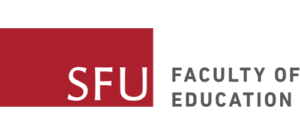Guidance and Inspiration for Imaginative Schools: Final Report of the Imaginative Schools Symposium Series (2019-2020)
This resource encapsulates the full experience of the ISSS. … I could see myself using this resource as a springboard in future staff meetings to get our imaginations and visions going for continued progress. I feel this is a good resource to spark conversations to continue working with the Core Competencies, Reconciliation, etc. ~ School Leader/ISSS participant
The Imaginative Schools Symposium Series (ISSS) was an act of imagination in which participants envisioned the myriad practices and requirements of schools that would put imagination first.
- What if school and community educational leaders, graduate students, educators, and researchers collaboratively explore the role of imagination in leadership, pedagogy, school culture, and reconciliation?
- What if cognitive tools of Imaginative Education are employed to engage and grow imagination in the professional learning process itself?
- What if the project findings are used to offer guidance to imaginative schools?
These are the questions that inspired and ultimately shaped the Imaginative Schools Symposium Series (ISSS) co-hosted by the Centre for Imagination in Research, Culture and Education (CIRCE) and the Centre for the Study of Educational Leadership and Policy (CSELP) at Simon Fraser University (SFU). (Read about Session One of the ISSS here and Session Two here.)
I think this is exceptionally well done – It took me back to that first session and the richness of the conversations! I particularly like the link to the competencies in the BC curriculum. ~School Leader/ISSS participant
The problem this project aimed to address was the ongoing misunderstanding and lack of knowledge about imagination’s roles in education. Imagination will remain on the educational sidelines as long as it is misunderstood and as long as there is limited knowledge about its contribution to all aspects of education. Rather than associating imagination solely with our youngest learners, the arts, or “artsy types”, this project built on the understanding that imagination is crucial for all learners, all learning, and all leadership. In engaging participants in the imaginative act of envisioning the requirements for “imaginative schools”, the ISS series revealed a range of educational stakeholders’ perspectives, beliefs and values related to imagination in education. What emerged was a fertile landscape of activities and processes rooted in imagination.
The final ISSS report was collaboratively written by the Simon Fraser University K-12 Imaginative Leadership graduate cohort and their professor, Dr. Gillian Judson. The ISSS served as the backbone for this cohort’s learning about imagination in leadership over the course of their two-year program. The resource shares the main themes that emerged from students’ thematic analysis of their post-session reflections, notes, and online discussions.
I think this is a really good report. It adds value generally to the field. ~ School Leader/ISSS participant
View the interactive online format here (click the tabs and read through the notebook) or download the pdf.
